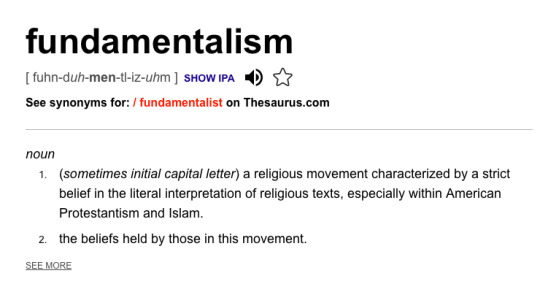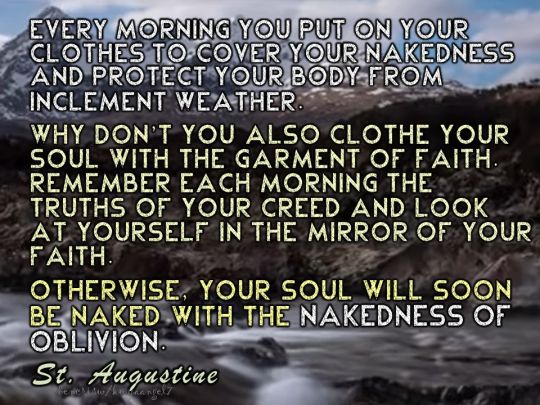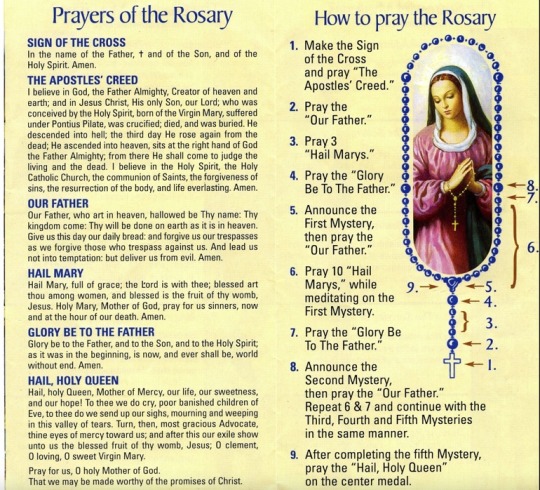#Apostles Creed
Text
An Adapted Apostle's Creed
I believe in Love [Aphrodite/God], Mother Almighty, Creator of Heaven and Earth; and in Liberation [Bacchus/Yeshua], her Son and our Lord; who was conceived by the Holy Spirit, born of the divine Saint Mary, suffered under Pontius Pilate, was crucified, died, and was buried. He descended into the Summerlands [Underworld]; the third day He rose again from the dead. He ascended into Heaven, and sits at the right hand of Love, Mother Almighty; from there He shall guide the living and the dead. I believe in the Holy Spirit, the universal church, the communion of saints, the forgiveness of sins, the immortal soul, and life everlasting. Amen/Blessed be.
[This is a work in progress. Note, I am a pagan who is incorporating Christianity into my practice because I like the rituals and prayers they have, and because I am a cultural Christian. I am not yet comfortable claiming to be a Christopagan, but I respect all belief systems.]
#christopagan#prayer#apostles creed#pagan#christian witch#aphrodite#bacchus#dionysus#dionysos#jesus#jesus christ#yeshua of nazareth
7 notes
·
View notes
Video
youtube
Credo - latin chant
3 notes
·
View notes
Text
Is There Encoded Religious Meaning in the "Twelve Days of Christmas"?
Is There Encoded Religious Meaning in the “Twelve Days of Christmas”?
https://www.historicmysteries.com/twelve-days-of-christmas-meaning/

View On WordPress
#Apostles Creed#Bethlehem#bible#Catholicism#Christian holidays#Christianity#Christmas#December 25#England#Epiphany#January 5#January 6#Jesus#Pentateuch#Son of God#Twelve Days of Christmas
2 notes
·
View notes
Text
Rejecting Evil: a clarification, Membership Questions
The Membership Questions: If I Wrote themExpanded:Do you reject EvilOf GunsOf White SupremacyOf the False Gospel of HateOf the NationalismOf trying to Control Your Child’s LifeDo you reject the idolatry of Power, Greed, Imperialism, Capitalism and Control?
Do you surrender to the Loving and Searing Truth of Jesus Christ as Lord and Savior, who opens your heart in such away that you continually…
View On WordPress
2 notes
·
View notes
Quote
The Apostles Creed, Nicene Creed, and Athanasian Creed identify the three divine Persons of the Trinity (Father, Son, and the Holy Spirit), focusing on their unique roles in redemption… Because too many Christian churches today fail to focus adequately on the full triune nature of God, many Christians live as functional Unitarians… The creeds which reflect a balanced trinitarianism can serve as a helpful corrective to today’s theological imbalances and lack of theological training.
Samples, Kenneth Richard. ‘Without a Doubt: Answering the 20 Toughest Faith Questions. p. 54, 55
0 notes
Text
Religious fundamentalism hangs by a thin thread
It occurs to me this morning that religious fundamentalism hangs by a very thin thread. That’s why it’s guarded so assiduously. The thread is that every word of an ancient and powerful book is, in fact, the very word of God for all time.
Since most people don’t actually read those books they don’t realize that they already have decided certain of those words no longer apply, but they accept the…

View On WordPress
0 notes
Text
Digging into doctrines
Core of the Bible podcast #103 – Digging into doctrines
For those of you who have been regular readers, today we will be doing something a little different. As I have now been doing this blog and podcast for a couple of years, I feel that I have made it pretty clear that the core principles of Kingdom, integrity, vigilance, holiness, trust, forgiveness and compassion resonate throughout the…
View On WordPress
0 notes
Text
youtube
"I did not make it; no, it is making me."
#Rich Mullins#Easter Sunday#Apostles Creed#A Liturgy A Legacy And A Ragamuffin Band#Creed#I did not make it - no it is making me#Resurrection Day#It's what makes me what I am#Make a joyful noise unto the Lord#O Death Where Is Thy Sting?#Youtube
0 notes
Text
Midweek Lenten Homily I: The Creed - Father and Son and Holy Spirit (3/1/23)
Primary Text | Matthew 28:16-20
-----------------------------------------------------
Dear People of God,
During our midweek services I always like to take some time to go over the ABC’s of our faith. The Creed, particularly, the Apostles’ Creed, is one of those most basic things every Christian needs to know. In our day and age, we cannot assume anyone knows anything about the Creed or anything else of the Christian faith. Even if we were the most learned and mature and strong of Christians, we still have Martin Luther’s example, who would say, “Though I be a learned Doctor of Theology and a scholar, yet every day I must become as a child, and gladly return to the catechism—to learn the ABC’s. We never do outgrow such things as the Lord’s Prayer, the Ten Commandments, the Creed, the Psalms, and the like.” And so, our question is, why the Creed? You will find that many churches and people do not subscribe to the Creed. Many view creeds as silly and useless things. Some look at them with suspicion, or even with animosity. I will say, when it comes to the things that belong to God, such as the Creed—there will always be many who oppose it. After all, when we have a creed we are acknowledging we believe this particular thing—which necessarily entails we do not believe a different thing. Having the Creed acknowledges that our faith is nothing we have constructed for ourselves, rather our faith is something we have in common with others—the faith once delivered to the saints long ago is ours as well. We did not make it up, God simply gave it to us. The Large Catechism gives us an idea what the Creed does, it says, “What kind of person is God? What does he do? How can we praise or portray or describe him in such a way so we may know him?...Thus the Creed is nothing else than a response and confession of Christians based on the First Commandment” (LC 2:10). In other words, the Creed tells us who our God is and what types of things he does. In light of the First Commandment—You shall have no other gods, the Creed is good for us to know which God is our God, and also to reject gods that are not this particular God.
In the passage from Matthew, Jesus says, “Go therefore and make disciples of all nations, baptizing them in the name of the Father and of the Son and of the Holy Spirit” (Matt. 28:19). So we have a God who is a Trinity. A three-in-one God. That is the God we believe in. Creed comes from the word that means “I believe.” In the coming weeks we will learn about this God who is one but who also is three—to use the words of Jesus, this God who is “Father and Son and Holy Spirit.” We actually always understand the Trinity in relation to Jesus first. There’s no understanding God that isn’t anchored in the God who became lowly, who nursed from his mother’s breasts, and who would take our sin and be nailed to the cross and die. The Large Catechism says, “We could never come to recognize the Father’s favor and grace, were it not for the LORD Christ, who is a mirror of the Father’s heart.” It is Christ who shows us God’s beating heart, who endures suffering, the shame of the cross, and death itself—that we may know God’s gentle and friendly heart, and in this way know God withholds nothing in fulfilling his gracious promises—forgiveness of sin, a life everlasting, and salvation. And yet, all of this would do us no good if we didn’t also have the Holy Spirit to let us know about it. For it is the Holy Spirit himself who comes to us in the word preached and the sacraments administered—and in that external word—not dependent on our own heart or mind—that the Spirit makes known the Christ who makes known the Father’s gentle heart. And so, one God, three persons. Three persons, one God.
The Creed is not a human invention, it is the work of God. The Creed sums up and declares the good news of the gospel in such a way that we can hear and confess it. Luther once put it: “It was as if bees had flown to the most beautiful flowers in Scripture to take the best pollen from each, using them to make pure honey in the Apostles’ Creed.” The Creed is good news because it’s primary function is to instill in us who our God is and what he has done for us and still does for us and will do for us, so that we may hold and know who our God is. The God who comes in lowliness and humility. This God whom we know in Jesus Christ is a God who comes with a promise: I am with you always, to the end of the age. In everything. In the highs. In the lows. In the light. In the dark. In life. In death. This God we know in Jesus Christ is with you especially when your life is in the sewer—when your sin overwhelms you, when your life is in shambles, and when you have no hope. For in those moments you have a God who raises you from the dead just as he was raised from the dead in his body.
0 notes
Text
Apostles Creed
I believe in God, the Father almighty,
maker of heaven and earth,
And in Jesus Christ, his only Son, our Lord,
who was conceived by the Holy Spirit,
born of the Virgin Mary,
suffered under Pontius Pilate,
was crucified, died and was buried.
He descended into hell.
The third day he rose again from the dead.
He ascended into heaven
and sits at the right hand of God
the Father almighty.
From there he will come to judge the living and the dead.
I believe in the Holy Spirit,
the holy Christian Church,
the communion of saints,
the forgiveness of sins,
the resurrection of the body,
and the life everlasting. Amen.

0 notes
Text
Prayer Against Losing Faith
“REMEMBER EACH MORNING THE TRUTHS OF YOUR CREED”
Pray the Nicene Creed …
I believe in one God, the Father almighty, maker of heaven and earth and of all things visible and invisible.
And in one Lord Jesus Christ, the only-begotten Son of God, begotten of the Father before all ages, God of God, Light of Light, very God of very God, begotten not made, being of one substance with the Father, through Whom all things were made: Who for us men and for our salvation came down from heaven, was incarnate by the Holy Spirit of the virgin Mary, and was made man: Who for us, too, was crucified under Pontius Pilate, suffered, and was buried: the third day He rose according to the Scriptures, ascended into heaven, and is seated on the right hand of the Father: He shall come again with glory to judge the living and the dead, and His kingdom shall have no end.
And in the Holy Spirit, the Lord and Giver of life, Who proceeds from the Father and the Son: Who together with the Father and the Son is worshiped and glorified: Who spoke by the prophets.
And I believe one holy, Christian, and apostolic Church. I acknowledge one baptism for the remission of sins, and I look for the resurrection of the dead and life of the age to come. Amen.

0 notes
Text

#catholic church#catholic#catholocism#catholiscism#the virgin mary#jesus#the blessed virgin mary#mother mary#mother of god#rosary#religious art#jesus christ#religion#christianity#our father#the apostles creed#glory be#bible#bible scripture#hail mary#pro life#girlblogger
158 notes
·
View notes
Text
It is necessary to believe that there exists a Church which is one, holy, and catholic. As regards the three Persons of the Trinity, Father, Son, and Holy Spirit, we believe in them in such a way as to place our faith in them. But now, changing our mode of expression, we declare that we believe the holy Church and not in the holy Church. Thus, just by this difference in language, God, who is the Author of all things, is distinguished from all His creatures; and when we receive all the precious blessings which He has conferred on His Church, we attribute them to His divine goodness.
- The Catechism of Trent (1.9.23). Bolded emphasizes added.
We must not believe in anyone but God. [...] I believe the holy Church, apostolic, universal, and orthodox, which has taught us this sound doctrine. I do not believe in Her as I believe in God, but I confess that She is in God, and God is in Her, not as though She Herself contained God, but rather insofar as She is Herself contained by God.
- John of Fécamp (Confessio fidei, Chapter 26)
The Creed says: credo ecclesiam, not in ecclesiam. One cannot believe in the Church —the holy Church— as one believes in God, the Father, Son, and Holy Spirit. According to this third article, one can believe only in God, in the Holy Spirit, and it is by knowing and confessing his work that one can believe the Holy Church exists, can believe that forgiveness of sins is granted by the Holy Spirit to man; or, as the first article declares, believe that heaven and earth were created by God the Father. The holiness of the Church, however truly it may exist and may be known by faith, is not the holiness of the Holy Spirit; it is the holiness that the Holy Spirit created and bestows upon her. The Holy Spirit separates the Church and sets her apart; he distinguishes her. He gives her a specific being and a particular law. The Church is holy because she remains a part of the created world, in which it is not possible to believe as one believes in God.
- Karl Barth (Church Dogmatics, Volume 4: The Doctrine of Reconciliation)
The entire Church always wants to refer humbly to her Lord. She does not wish in any way, even by simple passing preterition, to make herself equal to God or substitute herself for him. By doing this the Church puts aside more firmly than ever something which can in fact be called her "permanent temptation," that of self-idolatry.
- Henri de Lubac (The Christian Faith: An Essay on the Structure of the Apostles' Creed, pages 182-182), trans. Richard Arnandez, F.S.C.
#Christianity#Catholicism#faith#catechism#Ecclesia#God#Apostles' Creed#Latin#Karl Barth#Henri de Lubac#idolatry
26 notes
·
View notes
Text
Thinking again today about how the term "deconstruction" became such a catchall for the widespread upheaval in Christian circles the past several years, to include the embracing of agnostic/atheist stances with the throwing out of excess doctrines and ideologies to begin personal spiritual reformation.
What I have been walking through is the latter. But it has involved a lot of deconstruction. I had to (and continue to) remove the debris of All The Other Stuff that has been piled onto my faith by myself and my teachers and my culture, etc. I have to do that before I can get anywhere near the reformation part.
As far as spiritual formation goes, I think deconstructing my faith has been one of the best things to happen to me, better realizing what is meant by the builders rejecting the Cornerstone. But by no means has it been one of the easiest.
I say this here for two reasons:
One, I am so thankful for my deconstruction. I wish I didn't need it; I would prefer to never have the questions and the outrage and the anger and the grief and the confusion and the doubt and the wordless prayers and the betrayal. But they have taught me so much about the kingdom of God that I never would be able to see otherwise.
Two, it is possible (even likely) that some things I posted or reblogged or dm-ed in years past no longer align with my beliefs, though my core beliefs have not changed. I won't apologize for the change and growth bc I could not know then what I do now, and I will most certainly continue to say things I later learn better about. But I will offer an apology for any confusion that might cause, if one should come across some old post, or have followed me based on particular parameters that no longer exist.
Always be listening and learning, eager to grow, eager to see what has been hidden or neglected. It is not easy and, like with the term "deconstruction," you can be misunderstood as moving backward rather than forward. Yet be of good heart, and be transformed by the renewing of your mind in Christ Jesus.
#ragamusings#just processing a lot all the time and it's easier to feel grateful about it today than a lot of days so here i am#christianity#'core beliefs' here being a phrase which means: the apostles'/nicene creed and everything else is at a step-by-step process of examination#as you can imagine or may have experienced this is exhausting lol but also deeply good
7 notes
·
View notes
Text
'God is dead' as an edgy flippant atheist gotcha is so funny to me when applied to Christianity. Like I get what they're getting at but 'God is dead' is in fact a cornerstone of mainstream Christiam orthodoxy. We've already done a whole apophatic theology and based our religion around the concept of 'God is dead'... this isn't the slam dunk zinger one might hope for in a sort of bumper-sticker slogan battle of wits
5 notes
·
View notes
Text
Catechism of Pope Saint Pius X
The Apostle’s Creed
The Creed in General
1. Q. What is the first part of Christian Doctrine?
A. The first part of Christian Doctrine is the Symbol of the Apostles, commonly called the Creed.
2. Q. Why do you call the Creed the Symbol of the Apostles?
A. The Creed is called the Symbol of the Apostles because it is a summary of the truths of the faith taught by the apostles.
3. Q. How many articles are there in the Creed?
A. There are 12 articles in the Creed.
4. Q. Recite them.
A. (1) I believe in God, the Father Almighty, Creator of heaven and earth; (2) And in Jesus Christ, His only Son, our Lord; (3) Who was conceived by the Holy Ghost; born of the Virgin Mary; (4) Suffered under Pontius Pilate: was crucified, dead, and buried; (5) He descended into hell; the third day He rose from the dead; (6) He ascended into heaven; sitteth at the right hand of God the Father Almighty; (7) From thence He shall come to judge the living and the dead. (8) I believe in the Holy Ghost; (9) The Holy Catholic Church; the Communion of Saints; (10) The forgiveness of sins; (11) The resurrection of the body; (12) Life everlasting. Amen
5. Q. What is meant by the word: “I believe” , which you say at the beginning of the Symbol?
A. The word: I believe, means I hold everything that is contained in these twelve articles to be perfectly true; and I believe these truths more firmly than if I saw them with my eyes, because God, who can neither deceive nor be deceived, has revealed them to the Holy Catholic Church and through the Church to us.
6. Q. What do the articles of the Creed contain?
A. The Articles of the Creed contain the principle truths to be believed concerning God, Jesus Christ, and the Church, His Spouse.
7. Q. Is it useful to recite the Creed frequently?
A. It is most useful to recite the Creed frequently, so as to impress the truths of faith more and more deeply on our hearts.
The First Article of the Creed
God the Father Almighty
1. Q. What does the First Article of the Creed: I believe in God, the Father Almighty, Creator of heaven and earth, teach us?
A. The First Article of the Creed teaches us that there is one God, and only one; that He is omnipotent and has created heaven and earth and all things contained in them, that is to say, the whole Universe.
2. Q. How do we know that there is a God?
A. We know that there is a God because reason proves it and faith confirms it.
3. Q. Why do we call God the Father?
A. We call God the Father because by nature He is the Father of the Second Person of the Blessed Trinity, that is to say, of the Son begotten of Him; because God is the Father of all men, whom He has created and whom He preserves and governs; finally, because by grace He is the Father of all good Christians, who are hence called the adopted sons of God.
4. Q. Why is the Father the First Person of the Blessed Trinity?
A. The Father is the First Person of the Blessed Trinity, because He does not proceed from any other Person, but is the Principle of the other two Persons, that is, of the Son and of the Holy Ghost.
5. Q. What is meant by the word Omnipotent?
A. The word Omnipotent means that God can do all that He wills.
6. Q. God can neither sin nor die, how then do we say He can do all things?
A. Though He can neither sin nor die, we say God can do all things, because to be able to sin or die is not an effect of power, but of weakness which cannot exist in God who is most perfect.
22 notes
·
View notes